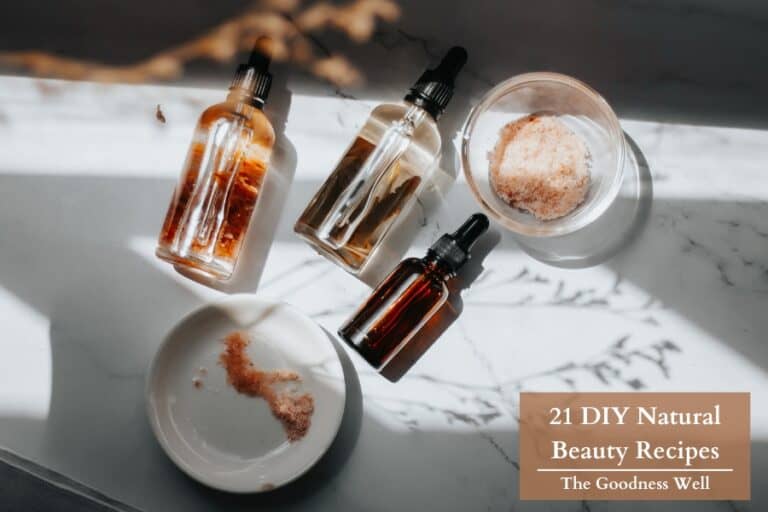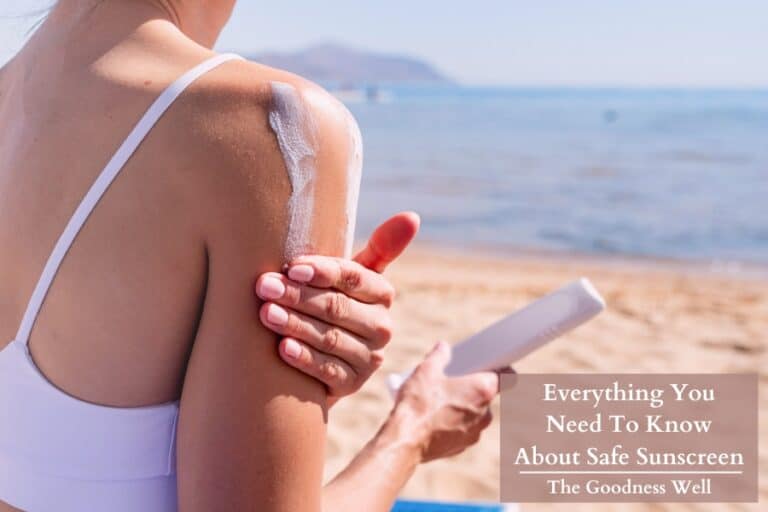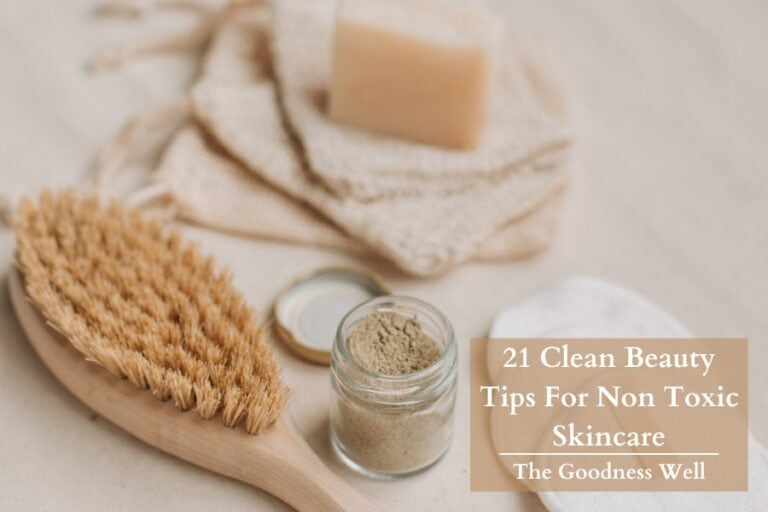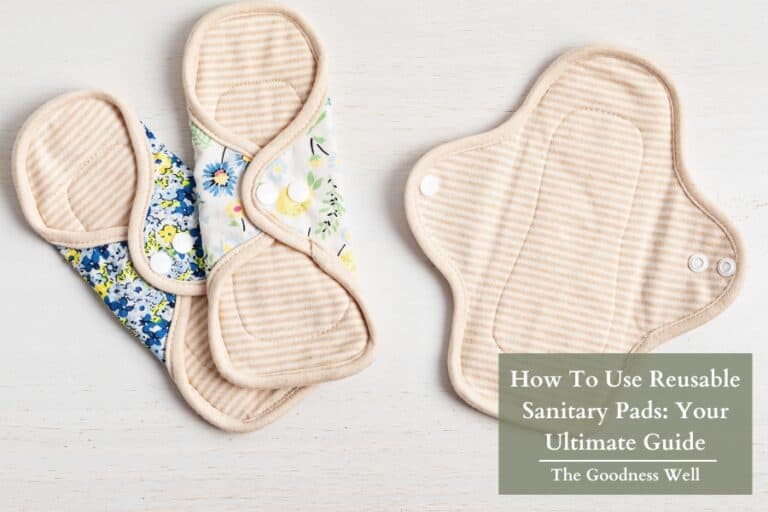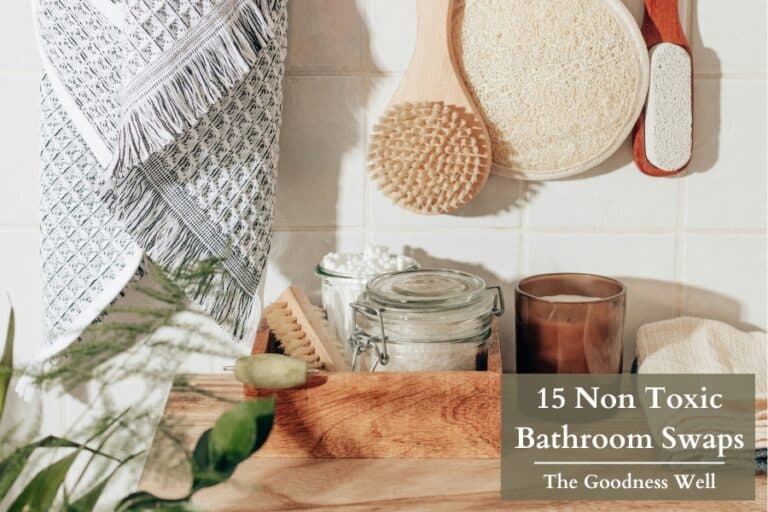Top 5 Ingredients To Avoid In Skincare
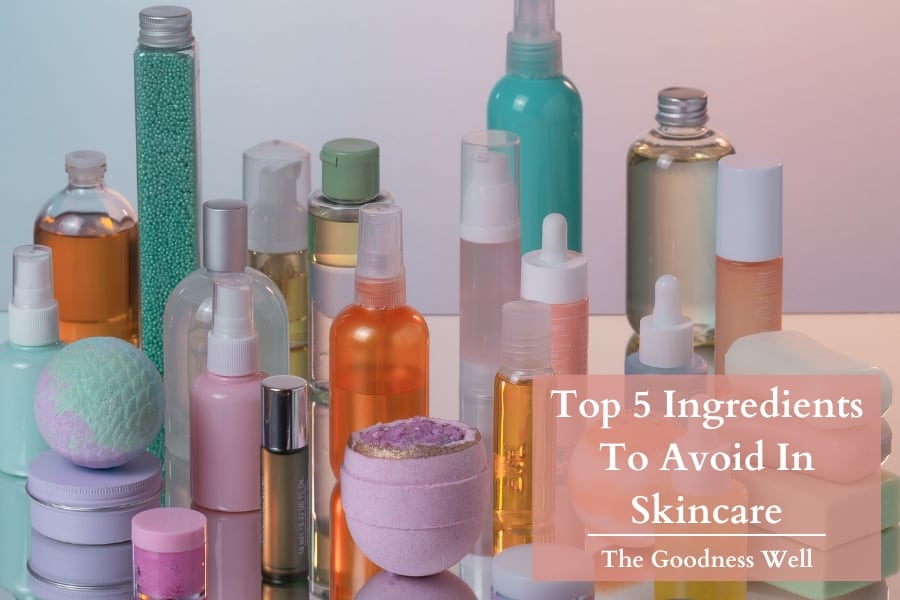
Finding clean skincare products can be challenging, especially with all those eye-catching labels and lengthy ingredient lists that make it tricky to figure out what’s safe.
…And while there are a few important things you want to consider when buying skincare products one of the number one considerations is the ingredients!
We’re highlighting the top 5 ingredients to avoid in skincare and why.
If you spot any of these in products it’s best to leave them on the shelf!
TD;LR
Top 5 ingredients to avoid in skincare
- Parabens (Methyl, Butyl, Ethyl, Propyl)
- Sulfates (SLS/SLES)
- Formaldehyde & Formaldehyde Releasing Preservatives
- Phthalates
- Synthetic Fragrances
The Top 5 Ingredients to Avoid🚫
1. Parabens (Methyl, Butyl, Ethyl, Propyl)
Beauty products, pharmaceuticals, and food use a synthetic preservative called paraben to extend shelf life by preventing bacteria and mold growth.
How is it harmful?
Parabens are considered harmful because they act as xenoestrogens—chemicals mimicking estrogen in the body, leading to estrogen disruption.
This disruption can cause health concerns like hormone function effects, negative effects on cholesterol, blood sugar, thyroid, and immune function, as well as increasing risks of allergies, obesity, infertility, and even certain types of cancer like breast cancer.
While studies have shown parabens in breast cancer tissues and linked them to hormonal disruptions in animal experiments, the FDA still considers parabens to be “safe” (no suprise🙄) in small amounts (but yet they put it in everything).
The FDA has only banned 11 substances 😑 from being used in cosmetics while the European Union has banned 2,400 chemicals (including certain forms of parabens).
2. Sulfates (SLS/SLES)
Sulfates, such as Sodium Lauryl Sulfate (SLS), are detergents or surfactants used in personal care products. They help to create lather and remove dirt and oil from skin and hair.
How is it harmful?
Sulfates can disrupt the skin’s barrier function leading to a weakened natural barrier, making it more likely to cause irritation and skin dehydration.
Especially for people with sensitive skin or skin conditions, sulfates can cause skin irritation and allergic reactions.
Avoiding sulfates can help maintain the integrity of the skin barrier, reduce the risk of irritation, and support healthy skin.
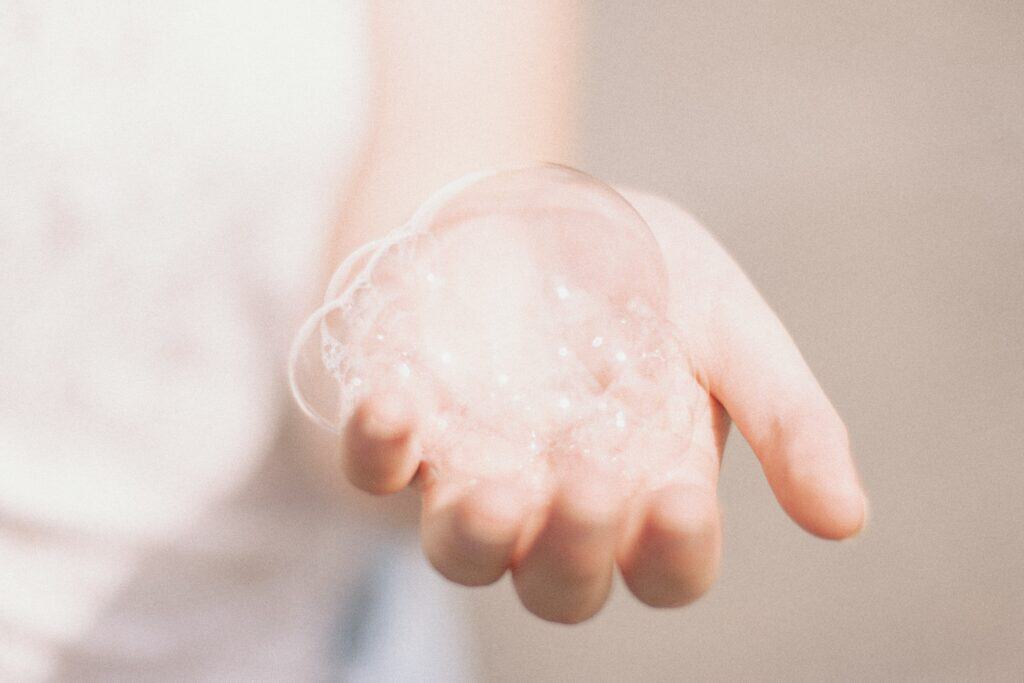
3. Formaldehyde & Formaldehyde-Releasing Preservatives
Formaldehyde is a naturally occurring organic compound classified as carcinogenic to humans. Manufacturers use it in personal care products as a preservative because it can kill bacteria and fungi.
Formaldehyde-releasing preservatives (FRPs) are compounds used in personal care products that slowly release small amounts of formaldehyde over time to inhibit microbial growth and extend shelf life.
Common FRPs include…
- Diazolidinyl urea
- Imidazolidinyl urea
- Dimethylol-dimethyl hydantoin
- Sodium hydroxymethylglycinate.
How is it harmful?
Formaldehyde is classified by the International Agency for Research on Cancer as carcinogenic to humans, posing potential cancer risks.
Formaldehyde and FRPs can also cause skin irritation, including contact dermatitis, and allergic reactions.
4. Phthalates
A variety of personal care items and cosmetics, widely use phthalates, a class of non-persistent chemicals.
In items like perfumes and cosmetics, they’re used to help fragrances last longer and improve how products stick to skin or hair. They’re also found in many other products, including soft plastics and glues.
How is it harmful?
Exposure to phthalates has been associated with a range of negative health effects.
In particular, during pregnancy, phthalate exposure is of concern due to its association with preterm birth, fetal growth restriction, and potential impacts on the development of the fetus.
Phthalates act as endocrine disruptors, interfering with hormone function in humans and potentially leading to reproductive and developmental problems.
Using fewer fragranced products could reduce exposure to certain phthalates, such as DEP.
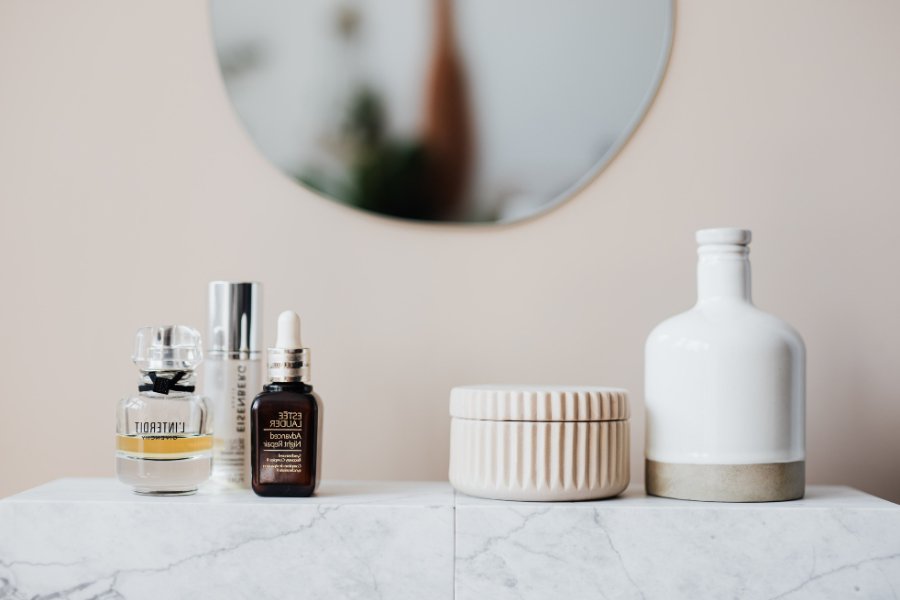
5. Synthetic Fragrances
The term “fragrance”, “perfume” or “parfum” on ingredient labels often covers a wide range of chemical compounds.
The unfortunate part is that manufacturers are not required to disclose the chemical compounds included in a fragrance. 😑
This lack of transparency makes it difficult to identify potential allergens or harmful chemicals in products.
And yet, synthetic fragrances are used in a variety of skin care products such as lotions, shampoos, soaps, and cosmetics to make them more appealing. They can also be found in household items like laundry detergents, air fresheners, and cleaners.
There are over 3,000 substances hidden, undisclosed in the word “fragrance”.
How is it harmful?
Synthetic fragrance chemicals can contain phthalates and volatile organic compounds (VOCs) that contribute to indoor air pollution and negative health effects.
They can trigger a range of problems from skin irritation, respiratory issues, headaches, and even cardiovascular and neurological problems.
Certain fragrance components may also act as allergens, causing hypersensitivity reactions, or as endocrine disruptors, interfering with hormonal functions.
The Importance of Knowing Your Ingredients
If you’re really wanting to cleanse your skincare routine and rid yourself of toxic products you have to learn how to read skincare and cosmetic labels and get past all the fluff and marketing tactics.
Manufacturers are betting on you not being aware enough to read ingredient lists, check their safety claims, or even think twice about how a product will affect you.
Using this blog as well as resources like EWG’s Skindeep Database will help you buy safe products.
Frequently Asked Questions
Natural skincare ingredients are often safer but that doesn’t eliminate the risk of allergic reactions or irritations.
Start transitioning to a cleaner skincare routine by gradually replacing products with harmful ingredients for those that have transparent and certified organic ingredient lists.
The most trusted certifications in clean beauty include ECOCERT, USDA Organic, EWG Verified, and COSMOS.

